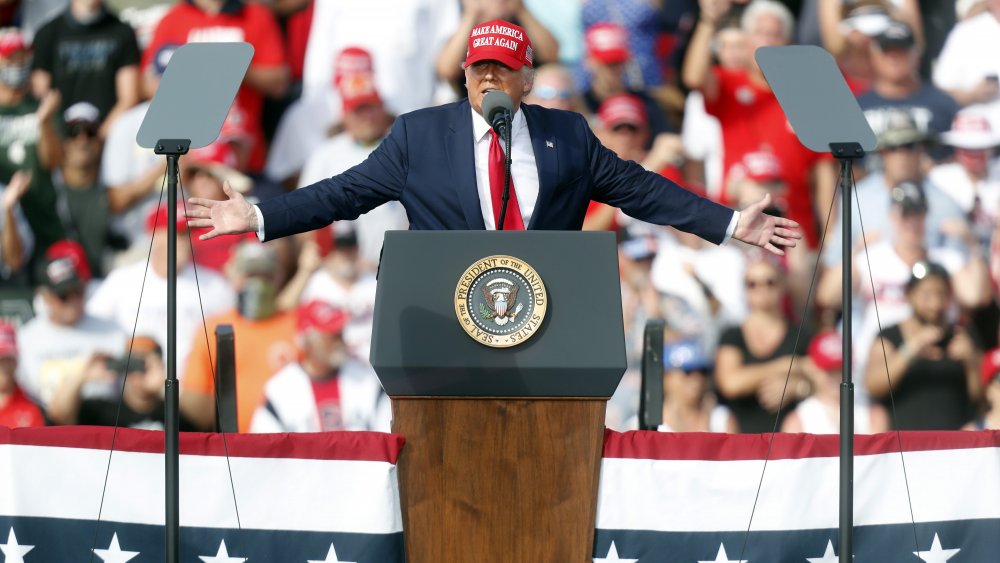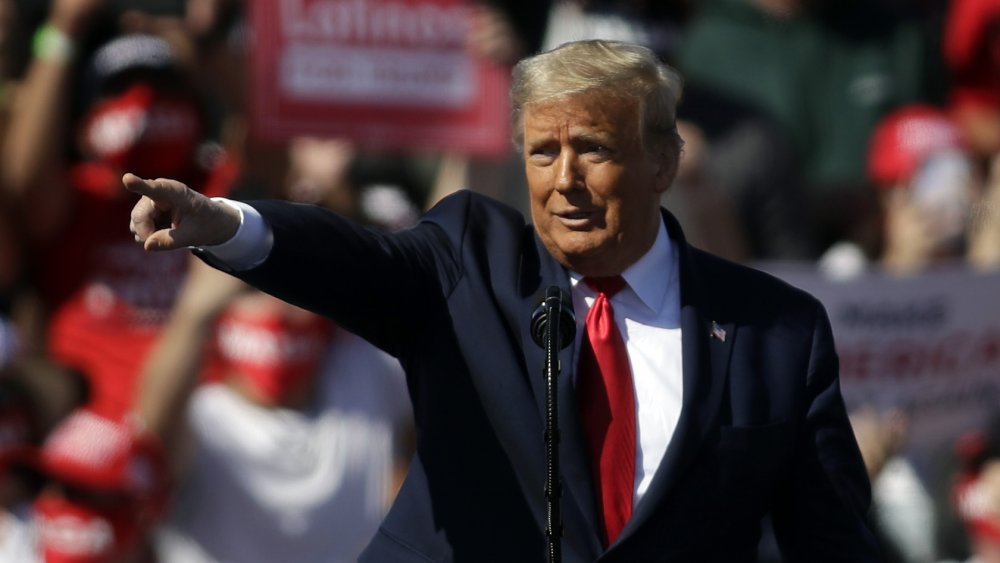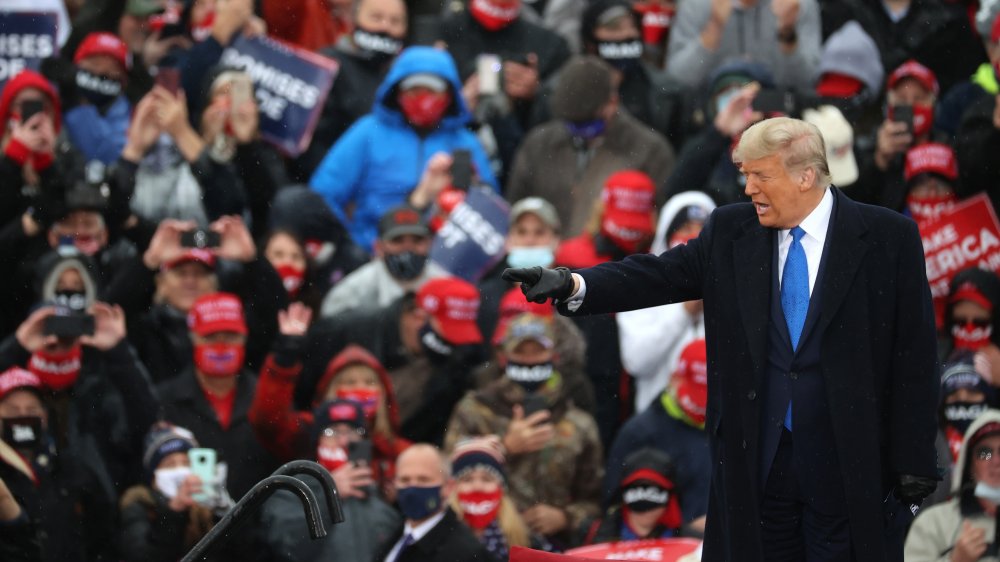Donald Trump Myths You Always Thought Were True
President Donald Trump is the undisputed king of the tall tale. As of late August 2020, says The Washington Post, over the course of his four-year presidency, Trump had said 22,247 false or misleading things. The president spins his tales with a vocabulary so unique to himself that dictionary.com has compiled a database of Trump's signature words: among them, "huge/yuge", "bigly," "millions and billions," and (drum roll, please) "fake news." At the helm of our country stands a man who is, if nothing else, an emperor in the art of the mirage.
In 2019, Politico reported that half of eligible voters, both Democrats and Republicans, believed that Donald Trump was a self-made man. If $413 million dollars worth of loans from your family is self-made, then sure. The myths that cloak our president are so profuse that they confuse even his beauty regimen. Donald Trump, for example, does not sit on golden toilets as was once circulated in a meme, but, per Snopes, his private jet boasts gold-plated sink fixtures. Tomayto, tomahto? Also, there's this. Trump's hair is probably not fake (a myth so highly circulated that Gawker investigated the claim). HuffPost, however, says that the president underwent crown-reduction surgery in 1989. It knows this because during divorce proceedings in 1990, Ivana Trump blamed a sexual assault on the pain Donald was suffering as a result of the procedure. What else about our President is more fable than fact?
Donald Trump is one of the richest men in the world
In 1984, Donald Trump, posing as an aid, called up Forbes journalist, Jonathan Greenberg, and tried to secure a spot on the Forbes 400 list as a billionaire. "It took decades to unwind the elaborate farce Trump had enacted to project an image as one of the richest people in America," Greenberg later recounted in The Washington Post. "Trump wasn't just poorer than he said he was. Over time, I have learned that he should not have been on the first three Forbes 400 lists at all." Greenberg goes on to document that while in 1982 Forbes had reported Trump's net worth at 100 million dollars, that year he was only worth about 5 million.
During his 2015 campaign for president, candidate Trump told a similarly inflated story, claiming 10 billion dollars to his name (via CNN). Forbes' 2020 400 list, however, puts him at just $2.5 billion, after losing a massive $600 million in just one year. $2.5 billion, by way of comparison, is about 2 percent of the $111 billion that Bill Gates has to his name. And Trump's 600 million dollars in losses? As Mother Jones points out, that's par for the course. From 2009 to the present, Trump has reported increasing losses to his real estate and golf course holdings. "This makes no sense," writes Mother Jones reporter Keven Drum, concluding "these losses almost have to be deliberate."
Donald Trump is fundamentally different than other politicians
Trump's 2016 bid for president hinged on his image as a fundamentally different kind of candidate, his promises to "drain the swamp," and his claims that "I'm not a politician, I'm a businessman" (via NHPR). The truth, as Vanity Fair documents, is that lobbying revenues have risen astronomically during Trump's administration. He's turned his hotels, says The New York Times, into de-facto "back rooms," where over 200 private interest groups and foreign governments have used to further their agendas, often mixing private with public interests.
And while Trump's rhetoric and controversial debate-style may not echo anything we've seen in the United States in the recent past, that doesn't mean he's not a "politician" by other standards. Vox compelling compares Trump's incendiary language to that of Zimbabwe's dictator Robert Mugabe's and Russian president, Vladimir Putin's. Politico, meanwhile, draws parallels between the so-called 'loyalty oaths' that Trump started asking his campaign followers to take in 2016 to fascist Germany. Trump's continued, says The Daily Beast, to demand these oaths of potential employees throughout the administration, most famously offering John Kelly the role of FBI director if he pledged loyalty to the president (via Intelligencer).


